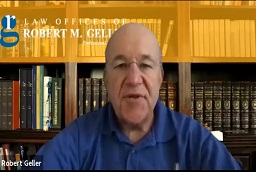Google Ads lives up to its name. The platform is committed to making advertising as easy as possible and helping people connect with the businesses, services, and information they need. At a general level, it’s powered by an auction system that determines what advertisements to display and where they will show on the page.

(Pixabay / jmexclusives)
The unique thing about the Google Ads auction is that the win doesn’t go to the highest bidder. Instead, the system analyzes the “Ad Rank” to determine which advertisers should be placed in the auction. Advertisers with a high Ad Rank have the greatest chance of qualifying and topping the auction.
So if you want your law firm’s ads to occupy the best positions on Google, you should work on improving your Ad Rank.
But for that, you need to have a more comprehensive understanding of how the Google Ads auction works.
A Closer Look at the Auction
When a person conducts a Google search, the Google Ads system identifies all ads whose keywords match his search query. It then ignores the ads that aren’t eligible, such as those disapproved or those targeting a different location. Of the ads left, only the ones with a sufficient Ad Rank may display.
The main factors that determine your Ad Rank include:
- Your bid
- Ad Quality Score
- The potential impact of your extensions
Your bid is the highest price you’re willing to pay for a click. And the amount you actually pay is only 1 percent more than the advertiser below you. That said, your Ad Rank threshold determines whether your ads get a higher or lower position in the auction.

Need Google Ads Management Help?
Free Google Ads account review for
qualified clients
Almost 20 years experience
The threshold takes a whole range of factors into account to ensure that both the advertiser’s bid and the quality of the user experience are considered to determine the placement of the ad.
The Quality Score is the lifeblood of the Google Ads auction system. It helps the system assess how relevant your ads, keywords, and ad groups are to a searcher’s query. Additionally, it shows the likelihood a person will click on your ad and whether your landing pages provide a good user experience.
So you can say that the Quality Score is made up of:
- Expected CTR – While assessing this metric, Google looks at the historical performance of your keywords, so don’t forget to use the ones that are crucial for your ads.
- Ad Relevance – This is the correlation between your ad copy and the keywords you use in the ads’ settings. Your ads should relate to what a user is looking for.
- Landing Page Quality – Your ads are only deemed as useful when your landing pages reflect the intent of the user. In other words, Google will assess whether your landing pages include the information that users are looking for. Brownie points if you’ve set them up to load quickly and render well on mobile devices.
Pro tip: The best way to improve your landing pages is to include the keyword in all the important places. These include your headline, introductory paragraph, and body copy. Essentially, your page should look like an extension of your Google Ads and offer an exceptional user experience to the visitors.
Based on these factors, Google will give each of your ads a Quality Score from 1-10, with 10 being the best.
Your Quality Score Impacts the Ad Rank
Essentially, the Quality Score is just as important in determining your Ad Rank as how much you’re willing to bid.
So taking steps to improve your Quality Score can improve your chances of winning the auction.
Ad Rank calculation:
Ad Rank = Max CPC Bid * Quality Score
As you can see, the bid isn’t the only thing that determines your Ad Rank and, consequently, your position on Google. Your Quality Score also has an impact on how well you do in the auction.
Let’s look at an example. Say, you and three other law firms are bidding for ad placement for the keyword “personal injury law firm.”
| Advertiser | Max. CPC | Quality Score | Ad Rank | Position |
|---|---|---|---|---|
| Your firm | $52 | 8 | 364 | 1 |
| Law firm 3 | $51 | 5 | 255 | 4 |
| Law firm 4 | $50 | 7 | 350 | 2 |
| Law firm 2 | $53 | 6 | 318 | 3 |
Based on what we’ve said about Quality Scores, you’ll edge out other law firms for that first ad position, even though your bid isn’t the highest among the group.
Plus, you’ll just pay the price of the last highest-ranking advertiser + $0.01. So, after the auction, you’ll pay $51.01. This is a way Google rewards more relevant, useful ads by offering better ad placements and decreasing actual CPC.
The only exception to this scenario is when there’s no one else bidding for the keyword. In that case, you’ll need to pay your maximum bid for the click.
Your Ad Extensions Matter
Ad Rank also weighs up the potential impact of your ad extensions. Advertisers that ensure their ad extensions match their CTA do better in the auction. So, always use extensions that provide an exceptional user experience to the searcher.
Here’s an example:

McDevitt Law Offices knows that location is important when people want to research and contact law firms, so it has an extension that shows its business address and phone number. Whoever wants to find their location can click on the address to get directions via Google Maps.
Smart Bidding Is the Key
Since part of your Ad Rank is determined by your maximum bid, it’s worth optimizing your bid strategy to get the highest ROAS (Return on Ad Spend). From our experience, Smart Bidding strategies like Target CPA, Target ROAS, and eCPC (Enhanced CPC) work best as they use Google’s machine learning to optimize for conversion value or conversions in each auction.
Plus, Smart Bidding factors a variety of signals into the bid optimizations. These are recognizable attributes about an individual, such as their location, time zone, and device. Using attributes like these, Smart Bidding can figure out the probability of conversion and then create a bid strategy around that analysis.
It would be smart to connect your Google Ads account with Google Analytics to be able to track conversions. With Smart Bidding and conversion tracking in place, you’ll spend less time working things out on your own. (Just make sure that you avoid these automated bidding mistakes, though.)
Conclusion
There you have it – everything you need to know about the Google Ads auction system.
When using Google Ads, the key thing to remember is that even if an advertiser bids higher than you, you can still secure the top position with highly relevant ads, keywords, and landing page copy. Moreover, you can activate/tweak your ad extensions to increase their potential influence on your ad position. Finally, consider using Smart Bidding to ensure your advertising dollars are being spent well and that you’re not unnecessarily paying more to secure top ad positions in Google Search.
If you make these changes but still need more adrenaline for your ads, get in touch with Webrageous. We don’t just specialize in Google Ads, we specialize in Google Ads management for law firms. Webrageous knows how to optimize ads for top positions in Google ads auctions, and that brings in more conversions for you with much less effort.



















